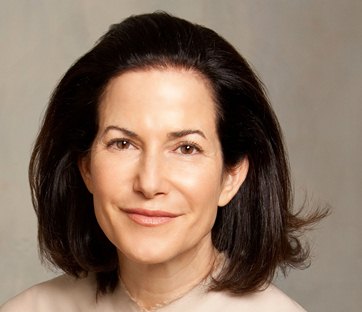The Loss of Serendipity: The Hidden Peril of Hyper-Targeting – Dee Salomon

In our industry, the fortuitous surprise, the unexpected insight, can be a difference maker. Serendipity is what marketers try to conjure with constant experimentation. It’s what open-floor agency office plans are designed to produce. For consumers serendipity broadens horizons and sparks desire.
Who would have thought that a word coined by an English Earl in the 18th Century from a Persian story he called a “silly fairy tale” would have a powerful meaning for 21st century marketers? And yet that is what Horace Walpole has bequeathed us with the word “serendipity.” Walpole created the word from the title of the tale The Three Princes of Serendip, in which these Persian nobles are “always making discoveries, by accidents and sagacity, of things which they were not in quest of.”
Yet in our zeal for ever more precise targeting of content and advertising, in our determination to give people exactly what we think they should want, do we risk losing the magic of serendipity?
As Walpole suggests, serendipity is not always accidental. It can be sagaciously manufactured. Any retailer worth her salt would argue that good merchandising is about creating an environment that stimulates serendipity. Serendipity, one finds, is more easily manufactured in a contained environment like a store or a magazine.
Websites were early digital containers; discrete environments that mirrored their bricks and mortar or analog predecessors. One surfed the web and discovery was, to a good extent, serendipitous. Then content became portable and, assisted by RSS and then social, it began to leak from its online container, if it ever really had one to begin with. We began to rely on search engines to create organization and the separation between discovery and serendipity began to manifest.
Now we find information, content and products being delivered to us courtesy of algorithms informed by past browsing behavior, friends’ recommendations and currently trending content. Machines are in effect creating new containers -- all of which seems fine, even helpful. But over time, as one’s choices are circumscribed by a smaller and smaller universe of inputs, the result is closed information loops that filter in sameness and filter out randomness.
As we breed out serendipity, could there be gloomy consequences?
Consider politics: If search engines know that I am a liberal democrat and use this knowledge to curate search engine results that lean to the left, then these results close off my information choices to diverse viewpoints. At a time of increasing political polarization we need accessibility to a wide variety of opinion; not the opposite.
Consider personal style: Personal style is about discovery and differentiation -- the hunt to find things and ways to distinguish ourselves from others and express elements of our real or wished-for selves. Websites that tailor recommendations by algorithm (aka Sitchfix,Stylit) might actually narrow personal style by refining results so well that there is no sense of whim or allure of outside influence.
Consider the purchase funnel: Amazon is working on anticipatory fulfillment of demand: over time its system will know, for example, that you buy toothpaste every two weeks and it will keep supplying you with Colgate Total. No need to walk down an aisle. No reason to consider other brands. You will have lost the “serendipity of toothpaste,” as Walpole might have said if he lived today and was a brand manager.
Next week, thousands will gather in New York for Advertising Week, which lists more than 250 “official” events on its agenda; there are many more that are not officially sanctioned. Every one of them offers the possibility of serendipitous discovery but only one offers the certainty of discovering serendipity: Wednesday from 4-6 in the Nasdaq auditorium, MediaLink hosts “The Loss of Serendipity” which will include conversations with Lorraine Twohill from Google, Bob Pittman from iHeartMedia and other notables along with Michael Kassan and Wenda Harris Millard. Please join us.
Dee Salomon is Senior Vice President at the strategic advisory firm MediaLink where her experience in brand marketing, digital media and business development has been put to use by Fortune 100's, global media companies and emerging technology companies. Dee can be reached at dee@medialinkllc.com
Read all Dee's MediaBizBloggers commentaries at Media Link-ed.
Check us out on Facebook at MediaBizBloggers.com
Follow our Twitter updates at @MediaBizBlogger
The opinions and points of view expressed in this commentary are exclusively the views of the author and do not necessarily represent the views of MediaBizBloggers.com management or associated bloggers. MediaBizBloggers is an open thought leadership platform and readers may share their comments and opinions in response to all commentaries.


